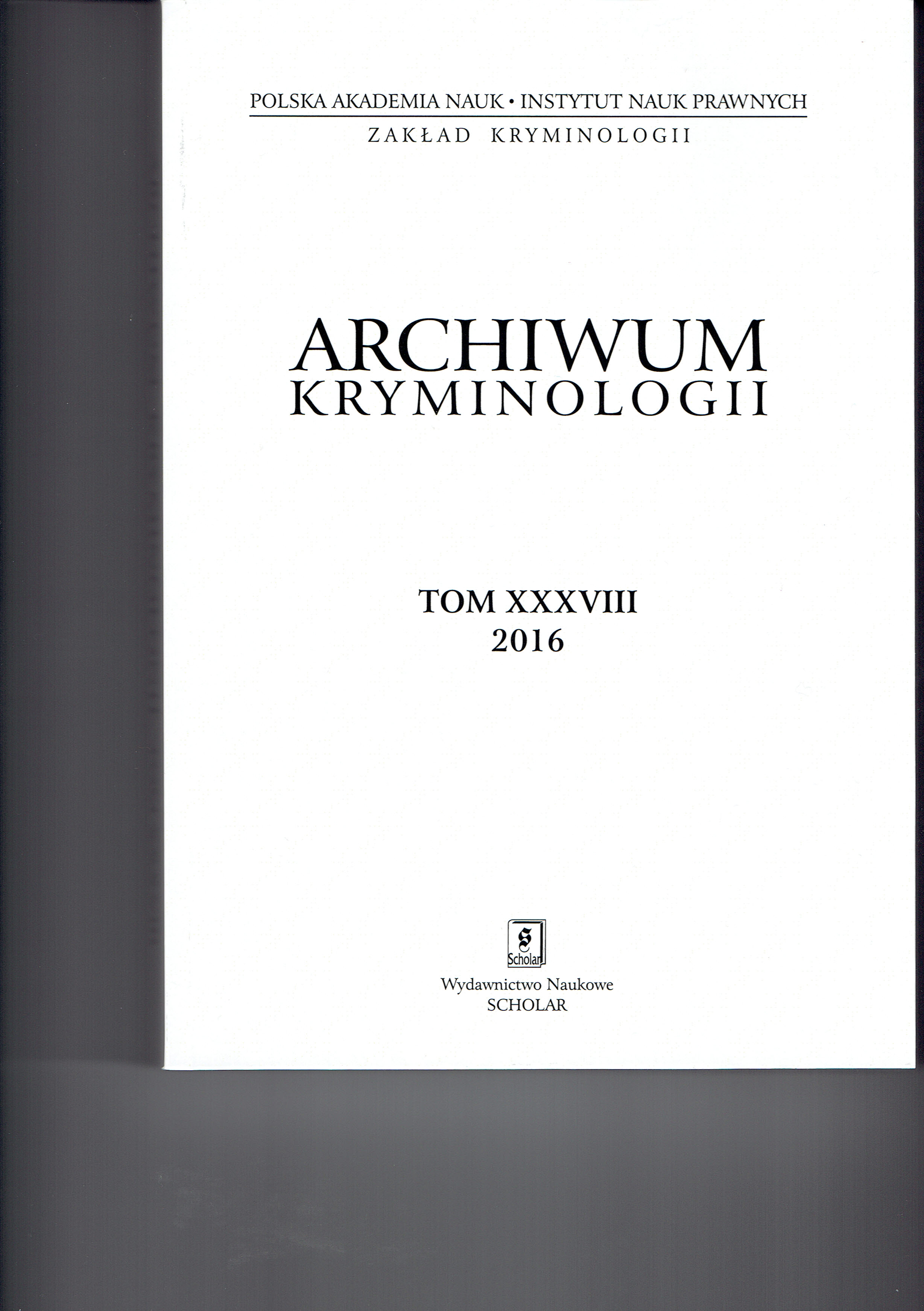Zasady legalizacji pobytu cudzoziemców i struktura cudzoziemców w Polsce
The Principles of Legalization of Foreign Nationals’ Residence in Poland – a Structural Overview
Author(s): Mieczysława ZdanowiczSubject(s): Law, Constitution, Jurisprudence, Criminal Law
Published by: Instytut Nauk Prawnych PAN
Keywords: cudzoziemcy; zasady legalizacji pobytu; struktura cudzoziemców w Polsce;kryminologia;
Summary/Abstract: The status of foreign nationals residing in the Republic of Poland is far from uniform. Individuals seeking refuge, to whom assistance should be offered in pursuance of international obligations or nationwide legislation, make up an unique group in many respects. As of May 1, 2015, foreign nationals on the Polish territory are eligible for the following forms of statutory protection: 1) refugee status, 2) subsidiary protection, 3) political asylum, or 4) temporary protection. Yet another privileged group of foreign nationals comprises all individuals benefiting from the freedom of movement of persons within the European Union. The rules applicable to the citizens of EU Member States who reside in Poland, as well as to members of their families, are subject to regulations originating in two legal systems, namely the national legislation and that adopted by the European Union. The EU Directive 2004/38/EC was transposed into the Polish legal system through an act of parliament of 2006. The rules of residence pertaining to EU citizens and members of their families vary, depending on the length of stay: 3 months, over 3 months, and permanent residence. In view of the actual length of residence of an EU citizen (a third-country national) in Poland, the formal requirements regarding the legalization of stay, vary. By far the least formalized approach applies to a foreigner intending to stay in Poland up to 3 months, whereas a stay of over 3 months requires a temporary residence permit. Apart from that, there is still an option of obtaining a permanent residence permit, and a long-term EU residence permit. Low-level cross-border traffic is a legal instrument meant to facilitate cross-border co-operation of local communities with the visa regime between the two neighbouring countries still in place. It makes crossing the border considerably easier in terms of the formalities actually entailed, while tangibly assisting in the development of cooperation between the neighbouring communities in the domain of culture, family relations, social interaction, etc. The total number of foreign nationals residing in Poland is relatively small. The group is well diversified in terms of individual status and the actual length of stay. Out of the group of persons clearly intending to enjoy the benefits offered by an internationally warranted protection status in Poland, a higher proportion satisfies the requirements for a subsidiary protection rather than the bona fide refugee status. EU citizens residing in Poland constitute a varied group with respect to their actual length of stay. By far, the most numerous is the group staying for up to 3 months. In the remaining group of foreign nationals, there are ones who have received a temporary residence permit. Much smaller is the number of persons who have received a permanent residence permit and a long-term EU residence permit. The opportunity to engage in low-level cross-border traffic is highly appreciated by the local communities.
Journal: Archiwum Kryminologii
- Issue Year: 2016
- Issue No: XXXVIII
- Page Range: 441-458
- Page Count: 18
- Language: Polish

